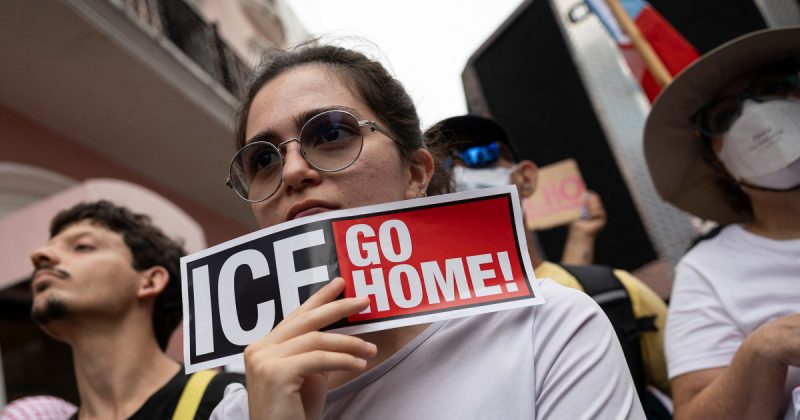
In the predominantly Dominican neighborhood of Barrio Obrero, Puerto Rico, an unsettling silence has fallen. The once-vibrant streets are now largely deserted, a chilling testament to the unprecedented immigration raids sweeping the U.S. territory. A mobile loudspeaker, known locally as a “tumba coco,” now cruises the neighborhood, broadcasting a message of hope and legal assistance to those living in fear.
Ayuda Legal Puerto Rico, a human rights organization, launched a new hotline in response to the heightened anxiety. Over 300 families have already reached out for free legal aid, navigating a drastically changed immigration landscape. The raids have shattered the long-held perception of Puerto Rico as a sanctuary for immigrants, a perception that began to crumble on January 27th, the week President Trump took office.
Witnesses recount harrowing scenes of agents breaking down doors, arresting over 40 people in a single raid. Ramón Muñoz, a Dominican immigrant who has lived in Puerto Rico for 40 years, describes the raids’ aggressiveness as unlike anything he’s ever witnessed. Adding to the complexity, detainees are transferred to the mainland U.S., far from their families and legal representation, as Puerto Rico lacks permanent detention centers.
Aracely Terrero’s story exemplifies the nightmare faced by many. Flagged by a local police officer for lacking business permits, she was detained for a month despite possessing a visa and being in the process of obtaining a green card. Her case highlights not only the difficulties in tracking detainees once they are transferred but also raises concerns about racial profiling, potentially reigniting discriminatory policing practices.
The January 27th raid, while shocking, was not entirely unexpected. Homeland Security Investigations (HSI) had been preparing to increase enforcement efforts since November, reorganizing resources and shifting priorities following Trump’s election. However, Governor Jenniffer González-Colón’s assurances that Trump’s focus was solely on the U.S.-Mexico border created a false sense of security for many.
The raids have disproportionately affected Dominicans, who comprise a significant portion of Puerto Rico’s immigrant population. Many work in hospitality, construction, and elder care – industries already struggling with labor shortages. While HSI claims to target individuals with criminal records, data shows that only 13% of those arrested this year have such records. Further complicating the situation, the governor, a Trump supporter, handed over the names and addresses of 6,000 people who obtained driver’s licenses under a 2013 immigrant-friendly law, refusing to challenge Trump’s policies to avoid jeopardizing federal funding.
The lack of permanent detention facilities in Puerto Rico has led to the creation of temporary holding centers, often described as inhumane. One facility, nicknamed “la neverita” (the icebox), is equipped with only 20 beds. Another, a previously shuttered ICE facility, has been reopened, despite past complaints regarding its conditions. The arrests are followed by swift deportation to mainland detention centers, leaving families and legal teams scrambling to locate their loved ones, creating a climate of fear and uncertainty.
The ACLU is actively monitoring the situation, citing multiple violations of human rights and civil rights. As immigration enforcement intensifies, the future for immigrants in Puerto Rico remains uncertain, overshadowed by the lasting consequences of Trump’s policies and the challenges of navigating a system that prioritizes deportation over due process.










